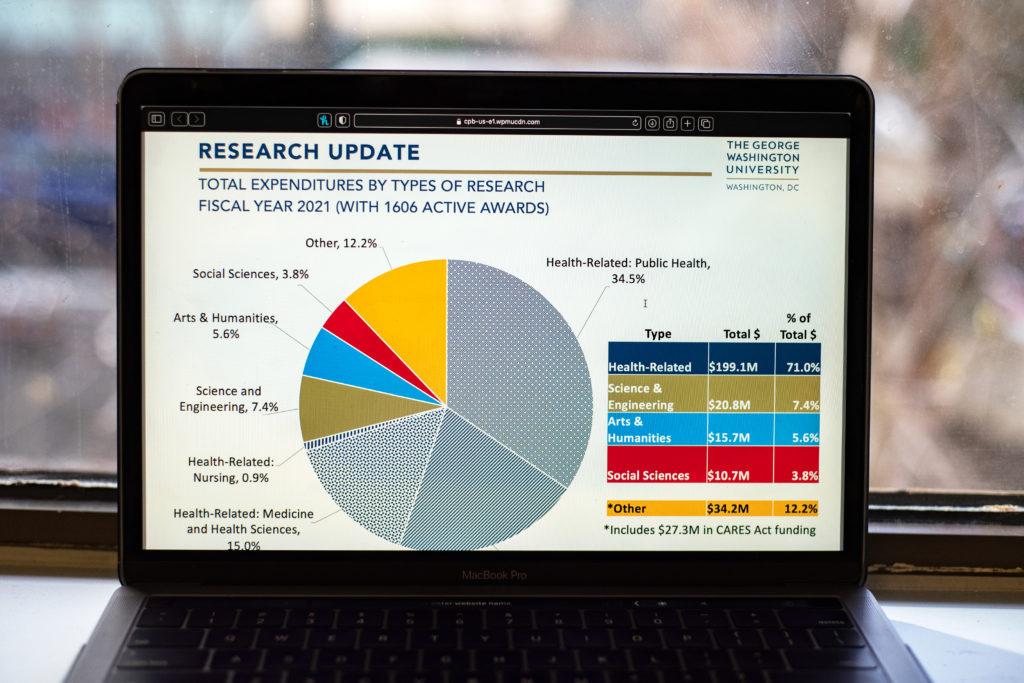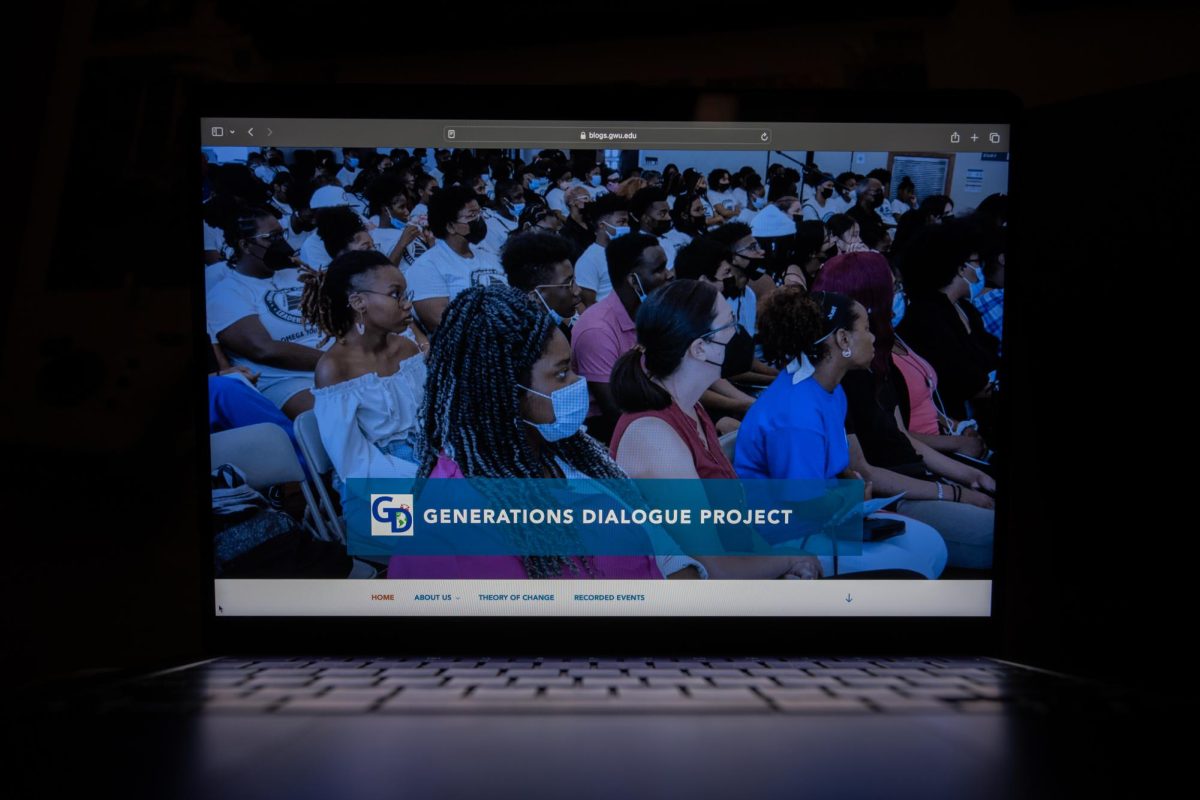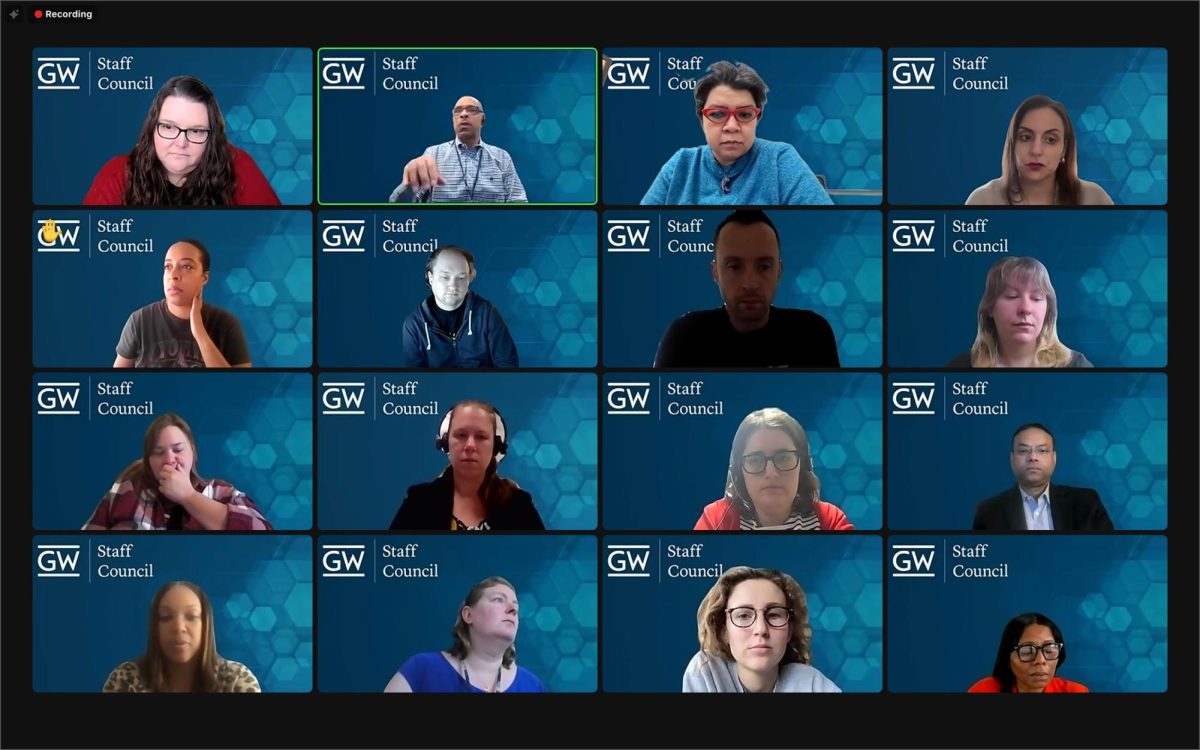Ongoing residence hall renovations may limit GW’s undergraduate enrollment totals, members of the Faculty Senate said in a report at a senate meeting last Friday.
Jamie Cohen-Cole, a faculty senator and professor of American studies, said in a presentation to the senate that projects like the reconstruction of Thurston Hall reduce housing on the Foggy Bottom Campus, in turn limiting undergraduate enrollment space. Cohen-Cole said the 2007 Foggy Bottom Campus Plan, an agreement between GW and D.C., requires the University to maintain a certain number of beds depending on the on-campus population, and almost all of GW’s nearly 6,500 beds were full this year, according to the report.
Cohen-Cole said officials are considering renovating Mitchell and Madison halls during the next several years, which could leave the University with insufficient housing for the current size of the on-campus student population.
“Each renovation like this, while needed, would mean that while those dorms are being renovated, GW would necessarily experience a lower ability to have the enrollment that we currently have,” he said.
Provost Chris Bracey also delivered a report on faculty salary equity at the meeting, which examined whether faculty are fairly compensated for their instruction, research and performance at the University. Bracey said the report did consider faculty’s gender and race, but he would look into how future reports can analyze the possible differences.
Bracey said officials compared faculty’s salaries with others in their department and school and adjusted the earnings given to professors who were considered outliers – falling more than one standard deviation outside of their peers’ salary totals. He said outlier salaries that were adjusted were “largely performance-related” and correlated to low or high faculty performances.
He said there were 37 outlier salaries in the Columbian College of Arts and Science, eight in the School of Engineering and Applied Science, seven each in the Elliott School of International Affairs and the School of Business, five in the Graduate School of Education and Human Development and four in GW Law in August. He said officials made a total of 23 faculty salary adjustments.
“The number of outliers that need an adjustment are relatively small relative to the total number of faculty,” he said. “So what that means is that schools are more or less getting it right in terms of their salary equity.”
Bracey said the Office of the Provost is working independently with the College of Professional Studies and the School of Medicine and Health Sciences to address salary equity issues, so they were not included in the report.
Bracey said he’d like to form a committee that will analyze how officials can address faculty salaries and develop a methodology that would study faculty salaries along gender and racial lines.
Interim University President Mark Wrighton announced at the meeting that he tapped Bracey to be the permanent provost of academic affairs, after Bracey served in the interim role for more than seven months. Wrighton said he made the choice under the advice of the senate’s executive committee and the Board of Trustees.
He said prospective administrative candidates will be glad that Bracey has been selected to be the permanent provost because it will give them assurance in their job stability.
“This will give assurance to any prospective candidate that they will know who they will be working closely with as we undergo those recruitments,” he said.
Wrighton said he would search for two candidates to serve as permanent deans and replace the interim leaders of the College of Professional Studies and the School of Nursing.
Wrighton also said members of GW’s shared governance task force, which hosted four town halls last month as part of its efforts to improve shared governance at the University, will go on a retreat this weekend to discuss the results of a shared governance survey that officials released to faculty, staff and trustees last month.
Wrighton said he has met with members of various departments, faculty and adminstrators across the University to introduce himself and discuss strategic planning. He said he met with the heads of each school to help develop a strategic plan for the school moving forward, but the University still needs to cement an official plan to approach enrollment in the future.
“As we define better our academic priorities by the process that I mentioned earlier and then undertaking a comprehensive strategic plan to make sure that we are on a good course to realize the aspirations that we have – for the moment, I don’t think we have that plan,” he said.
Senators also expressed concerns about decisions that led officials to track community members’ locations without notifying them during the fall semester.
Officials said at the meeting that federal research expenditures increased by $22 million, and the University released 45,000 publications during Fiscal Year 2021. GW also received more than 1,600 active awards from non-profit organizations, the federal government and industry associations in the same year.
“I think research development is an opportunity that I seek to really enhance,” Vice Provost for Research Pamela Norris said at the meeting. “That is a competitive intelligence looking at what the landscape of our peers look like, where we can be distinctive in what our strengths are, perhaps where we might be missing a piece and how we might be able to add to that.”









